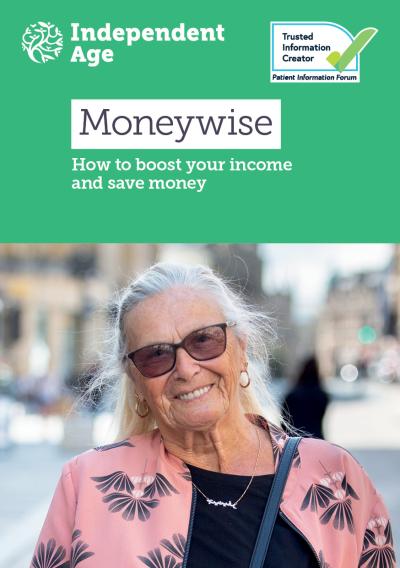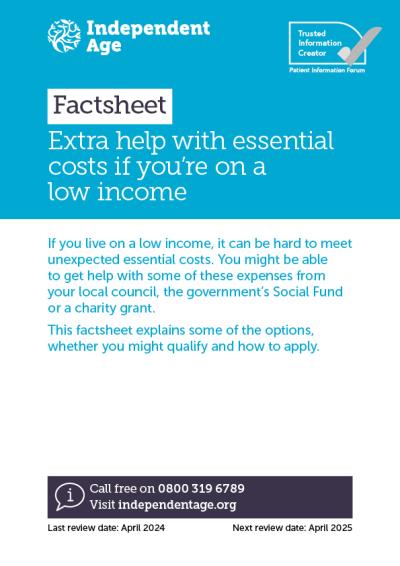Related publications

Moneywise

When you’ve got very little money coming in, it can be difficult to budget for unexpected expenses. If you’re finding it hard to manage, you may be able to get extra help from charities and other organisations in your community.
There are many charities that offer different types of support if you can’t get help elsewhere, such as grants that you do not have to repay.
You may be able to get:
Charities won’t usually pay for luxury items, foreign holidays or legal fees. And they won’t help with items or services that your council, the NHS or a government scheme should provide.
Most charities support people in financial need who have something in common, such as:
Many charities will also help the dependents of the people they support, such as partners or children. You may be able to apply to more than one charity at a time.
The charity Turn2us has an online grants search tool to help you find grants or other types of support. You can also contact our Helpline for advice.
If you’ve ever served in the Armed Forces – including National Service or the Home Guard – you may be able to get help from military charities, like the Royal British Legion. Find out more about the support available on the Turn2us website.
Our factsheet Extra help with essential costs if you're on a low income has more information about how to find a charity.
Most charities will only help you if you’re already getting all the benefits or other help you're entitled to. Before you apply for a grant from a charity, make sure you:
If you need advice about what you could be claiming, call our Helpline on 0800 319 6789 and arrange to speak to an adviser.
Each charity will have its own application process. You may have to fill in an application form or write a personal letter. Ask your chosen charity how to apply. They may ask for evidence that you’ve been turned down for other funding or support. You may have to show proof of your income and savings.
In some cases, you may have to apply through an intermediary. This could be your GP, a social worker, an advice worker or an organisation. The charity will tell you if you need to do this. You can also find details at Turn2us.
Some charities have case workers or welfare officers who can help you to apply. You can also get help through organisations such as Turn2us or Citizens Advice. Our advisers can also support you – contact our Helpline.
Food banks provide emergency boxes of food to people in need. They may also offer other items, such as toilet paper, soap and pet food. Some food banks run advice sessions and may provide hot meals as well. Some also provide energy vouchers.
To get help from a food bank, you may need a voucher or a letter from your council, a professional (such as your GP), or an organisation like Citizens Advice or Independent Age. Contact our Helpline or ask your local food bank where you can get a voucher or referral if you need one.
Your local council or the charity Trussell Trust can help you find a local food bank. Or you could use the Independent Food Aid Network map. The Salvation Army also runs foodbanks. Your faith community may also offer support.
Your local council should be able to give you information about places that offer free food and other support in your area, including soup kitchens, community fridges and community hubs.
There are also some apps (applications) that can help you find free or cheap food in your area. This is food – and sometimes other items – that would otherwise be wasted. These apps include Olio and Too Good To Go, which partners with businesses to sell food at a reduced price near closing time, so they don’t throw it away.
Depending on where you live, you may be able to get:

Read our factsheet Extra help with essential costs if you’re on a low income for more information about grants from charities and other support.
To find your local Citizens Advice, go to citizensadvice.org.uk or cas.org.uk in Scotland.
For help to find a charity or to make an application, contact our Helpline.